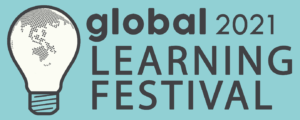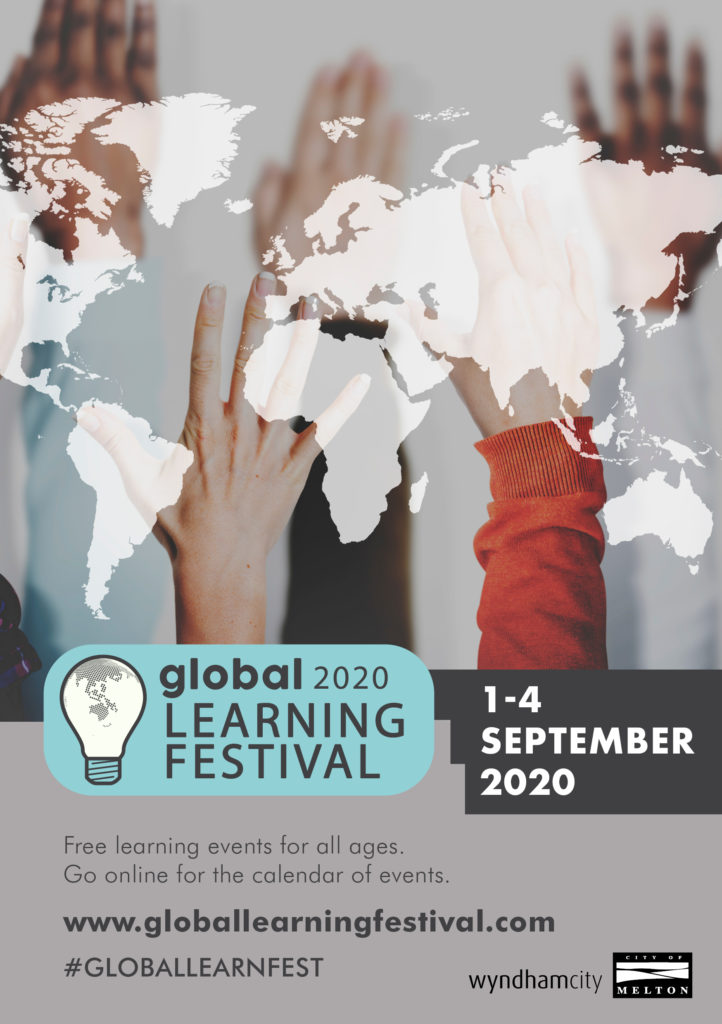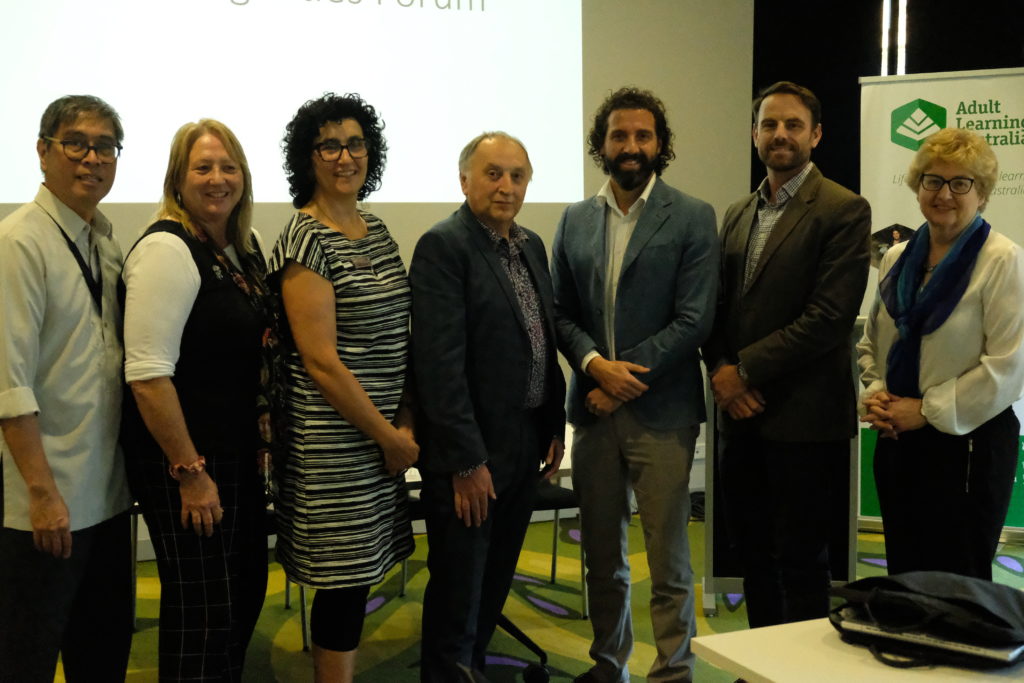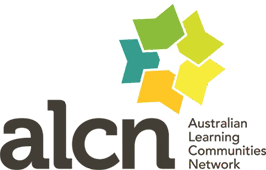-
Tips and Tricks for holding an Online Learning Festival
Lara Pugh, Learning City Project Officer, Wollongong City Council interviewed learning community members who coordinated the LearnWest Learning for Earning Festival and has written the following tips and tricks for beginners on how to hold a Learning Festival.
Hosting a Learning Festival – Tips and Tricks for Beginners
- Collective Impact Assessment Tool
City of Melton (2017). “Collective Impact Assessment Tool (CIAT).” Retrieved from https://meltonciat.com/.
The Collective Impact Assessment Tool (CIAT) is designed to measure how well partnerships deliver on Project or Learning City activities in order to assess Collective Impact.
This tool has been used to assess partnership projects, for example, it was applied successfully to the evaluation of the Wyndham Learning Community Strategy 2014-2017 to assess the collective impact of partnerships across the Life Stages. CIAT generates consistent numerical data about subjective findings and does provide baseline data. CIAT was able to quickly identify strong partnerships, for example, in the Adults and Seniors area, and those that needed strengthening, for example, the School Years.
UNESCO UIL has several useful tools for those who want to use a learning community or learning city approach in their neighbourhood. These documents are also useful to explain the concept.
To start go to UNESCO Global Network of Learning Cities: Guiding Document at https://uil.unesco.org/lifelong-learning/learning-cities/unesco-global-network-learning-cities-guiding-document.
There are also a range of videos in plain language on how to build a learning city. These are terrific resources that you can use with your community at https://mailchi.mp/unesco/launch-of-video-tutorials-on-how-to-build-a-learning-city?e=d56f6f7d25
The full suite of guiding documents is listed at https://uil.unesco.org/lifelong-learning/learning-cities
Webinar series “Learning Cities’ COVID-19 recovery: from research to practice”
The international webinar series from UNESCO UIL and PASCAL International Observatory is now available:
- PASCAL International Observatory and UNESCO UIL (17 June 2020). Webinar 1: The challenge of inclusion in learning cities. Retrieved from https://www.youtube.com/user/uilger/videos : From Research to Practice Webinar Series. YouTube, UNESCO UIL
- PASCAL International Observatory and UNESCO UIL (8 July 2020). Webinar 2: The challenge of measurement, planning and evaluation in learning cities. Retrieved from https://www.youtube.com/user/uilger/videos : From Research to Practice Webinar Series. YouTube, UNESCO UIL
- PASCAL International Observatory and UNESCO UIL (16 September 2020). Webinar 3: The challenge of developing the role of TVET, business learning, and entrepreneurship in learning cities. Retrieved from https://www.youtube.com/user/uilger/videos : From Research to Practice Webinar Series. YouTube, UNESCO UIL
- PASCAL International Observatory and UNESCO UIL (21 October 2020). Webinar 4: The challenge of Education for Sustainable Development. Retrieved from https://www.youtube.com/user/uilger/videos : From Research to Practice Webinar Series. YouTube, UNESCO UIL
Professor Norman Longworth, former president of the European Lifelong Learning Initiative and visiting professor to the universities of Southampton, Sheffield Hallam, Edinburgh Napier, and Stirling, and advisor to the Centre for Adult Education and Lifelong Learning, University of Glasgow, has generously made available from his life’s work a range of learning community and learning city resources. This includes book chapters, rationale for learning communities and learning cities, diagrams, checklists, presentations. He wants you to use them in your community and adapt them to your needs!
Read more: http://www.longlearn.info/?fbclid=IwAR1UxSkulsO2xXmkgECl-zYVBwjyZqMaNknIlVLCsz5nb4ay0PwD_iPkS40
Several case studies have been written about the development of learning communities and learning cities in Australia.
Kearns, P. (2014). “Ideas Informing Gywdir Learning Region.” Retrieved from http://lcn.pascalobservatory.org/blog/blogentry/lcn-network/ideas-informing-gwydir-learning-region.
Mitchell and Associates (2006). “The Gywdir Learning Region Model.” from http://www.bingara.com.au/about-bingara/community/education/gwydir-learning-region/.
Wheeler, L., et al (2013). Gwydir Learning Region. Learning as a Driver for Change. L. Wheeler, S. Wong, J. Farrell and I. Wong. Sydney, Australian Centre of Excellence for Local Government. University of Technology. 2020: 26-33. Retrieved from: https://opus.lib.uts.edu.au/handle/10453/42056
Eastcott, Max (2020). Developing Gwydir Learning Region. ALCN Roundtable Presentation https://2022.alcn.com.au/wp-content/uploads/2020/12/Roundtable-Presentation-2.mp4
Wheeler, L., et al. (2013). The Hume Global Learning Village. L. Wheeler, S. Wong, J. Farrell and I. Wong: Sydney Australian Centre of Excellence for Local Government, University of Technology. 34-42. Retrieved from https://opus.lib.uts.edu.au/handle/10453/42056
Edwards, S (2020). Melton A Learning City 2020 PDF
Blunden, P. and L. Wheeler (2015). Melton, Australia.in Case Studies of Twelve Learning Cities. R. Valdes-Cotera, N. Longworth, K. Lunardon et al. Hamburg, UNESCO UIL: 8-21. Retrieved from https://unesdoc.unesco.org/ark:/48223/pf0000234536
Melton Learning Community Team participated in a PASCAL/UNESCO UIL Webinar – 17 June 2020 – on The Challenge of Inclusion on Learning Cities. https://www.youtube.com/watch?v=u6_zxWuFVO4&feature=youtu.be&fbclid=IwAR2nLa20H2kelalyQ5n0t5RUpYR-0H77i6tuI3qpjwGsBw1mz3AKsg-VFck
See also Melton Learning – https://www.melton.vic.gov.au/Out-n-About/Libraries-and-learning/Learning
Tabbagh, D. and L. Wheeler (2020). Wyndham City: A Tale of Steady Progress Towards a Sustainable Learning Community. Adult Education in Global Times, Vancouver, University of British Columbia. Retrieved from https://unesdoc.unesco.org/ark:/48223/pf0000234536
Wyndham Learning Community Team participated in a UNESCO UIL Webinar on Learning Cities’ Response to COVID-19 – Culture and Education – 3 June 2019 [https://www.youtube.com/watch?v=JyLyp_jPajw&feature=youtu.be&fbclid=IwAR37KrxRZHDUC55O0hRCW5slkFuP9-L8iE2LDCxrtAmv0lcLr7Q8ho9Hofg]
Wheeler, L. and D. Tabbagh (2020). “Wyndham City: A tale of steady progress towards a sustainable learning community.” Australian Journal of Adult Learning 60(3): 492-514.
Celebrating Entrepreneurial Models of Learning Communities and Cities
Information about the successful Australian Learning Communities Network 2020 Virtual Roundtable Celebrating Entrepreneurial Models of Learning Communities and Cities can be found at:
https://www.wyndham.vic.gov.au/news/australian-learning-communities-network-2020-roundtable-%E2%80%93-celebrating-entrepreneurial-models
As well as our social media accounts, we publish an Annual Report and quarterly newsletters summarising the work of our members, and providing further information and examples about international learning communities and learning cities.
The Annual Reports summarise the activities of our network and our members for the year and is presented annually at our AGM.
2019/2020 Annual Report
2020/2021 Annual Report
Enjoy the latest 2022 and past 2021 editions of our newsletter here.
Summer Edition – 2019
Autumn Edition – April 2020
Winter Edition – June 2020
Spring Edition – September 2020
Summer Edition – 2021
- ALCN Webinar and AGM – Australian Learning Cities Yesterday, Today, and Tomorrow
11 May 2021
Keynote speaker Peter Kearns, AO
Peter Kearns, AO, spoke about Learning Cities in Australia and how this movement has evolved over the years, ranging from the initial development in the past, to how we can look to tomorrow for true change and impact. Peter wrote a background paper where he suggested 12 steps towards a sustainable future for learning cities. He says that now is the time to start a renaissance movement of learning communities and learning cities in Australia.
Jac Torres-Gomez from Wyndham City Council then spoke about Empathy Partnerships and the role this plays in supporting strong, sustainable learning cities.
Dr Leone Wheeler, Hon. CEO, ALCN, facilitated the discussion.
To hear the full Webinar go to https://www.wyndham.vic.gov.au/services/learning-community/learning-resources
-
Global Learning Festival 2021 – 8-11 November
Review of the Global Learning Festival held 8-11 November

Written by Jac Torres-Gomez
Running from 8-11 November 2021, the Global Learning Festival (GLF) showcased over 95 live and recorded events delivered from across Australia, the USA, the U.K, Israel, Northern Ireland, Taiwan, Canada, Bangladesh, Kenya, Benin, Colombia, Finland, Italy, Lithuania, and Turkey.
Co-hosted by the City of Wyndham and the City of Melton along with over 20 learning communities around the world, the Global Learning Festival ran for the second time in 2021. The GLF aims to bring unity and connection to communities all over the world and to give learners a firsthand experience of the benefits that lifelong learning can bring, particularly during uncertain and challenging times.
2021 saw strong support, partnership and collaboration from PASCAL International Observatory, the Australian Learning Communities Network (ALCN), Adult Learning Australia, UNESCO Global Network of Learning Cities, RMIT University and WISE Qatar Foundation.
Topics included Cooking, History, Environment & Sustainability, International Development, Inclusion, Entrepreneurship, Reconciliation, Gardening, Cooking, Hope & Attachment, Hope & Resilience, Mentoring, Mental health and self-care, STEM, Author Talks, Career Change, Peace-Building, Human Rights, Virtual Tour of Parliament House….there was truly something for everyone! Some recorded events can be viewed on the Global Learning Festival website.
A snapshot of the Global Learning Festival includes:
- Over 95 events registered from 15 countries including Australia, the USA, the U.K, Israel, Northern Ireland, Taiwan, Canada, Bangladesh, Kenya, Benin, Colombia, Finland, Italy, Lithuania, and Turkey.
- Registrations for events came from a range of sectors including university, youth, disability, community development, libraries, local government, education, state government and the private sector.
- Over 1000 people logged in and “attended” the range of events, as well as viewing recordings.
- Over 100 presenters shared the floor across the four days to deliver a wide range of lifelong learning.
- Participants, event providers and members of the working group were surveyed to gain valuable feedback to inform planning for 2022.
Many events are available online go to https://globallearningfestival.com/
-
Global 2020 Learning Festival – 1-4 September
A world first! The UNESCO Learning Cities of Wyndham and Melton collaborated with other Learning Cities from Australia, England, Wales Turkey, Qatar and others, and formed partnerships with ALCN, Adult Learning Australia and PASCAL International Observatory to organise an online Global Festival.
For further information go to: https://www.globallearningfestival.com/ A report about the Global Learning Festival is attached here.

Smart Learning Cities Forum – Melbourne – 26 February 2020
To coincide with the visit of Professor Mike Osborne to the European Centre, RMIT University Melbourne, the Australian Learning Community Network (ALCN), Adult Learning Australia (ALA), the European Centre, RMIT University, the City of Wyndham and the City of Melton collaborated on a Smart Learning Cities Forum.
The idea was to examine the Smart City developments that are gaining momentum around the world and consider possible linkages with Learning City approaches.

Left to Right: Associate Professor Robbie Guevara, RMIT University; Ms. Jenny Macaffer, CEO, ALA; Ms. Diane Tabbagh, Coordinator Learning Community, Libraries and Community Learning, Wyndham City Council; Professor Mike Osborne, University of Glasgow; Dr Adam Mowlam, Manager, Smart City Office, Wyndham City Council; Mr. Mathew Wilson, Manager Community Planning, Melton City Council; Dr. Leone Wheeler, Hon. Chair, ALCN
Professor Mike Osborne set the scene with a keynote entitled Are Smart Cities Learning? His presentation was based on a background paper completed for UNESCO’s Fourth International Conference on Learning Cities held in Medellín, Columbia, 1-3 October 2019 to be published shortly. First, a summary of the key concepts that underpinned current Learning Cities. For example, the UNESCO definition of learning cities; equity; the importance of inclusion of indigenous knowledge; individualism vs collectivism; structural and functional diversity of learning systems (for example, adequate transport is a barrier to learning); lifelong and lifewide learning; the inclusion of civil society, and the idea of the co-construction of knowledge. We were reminded that only 41 countries have a national policy framework around lifelong learning with South Korea as an exemplary example.
Many Smart City developments have been largely tech driven where education and learning seems to be missing from strategies. The Smart City approach might be seen an opportunity for a city to gain further resources and rebrand itself. Professor Osborne challenged this idea. How do you shape Smart City developments? How do you get citizens to input and create change? How does the Smart City help citizens cope with strategies that are put in place? The implication is to focus on engaging citizens. Promote mutual exchange and the co-construction of knowledge. Learn about the quadruple helix, that is the collaboration of Higher Education; innovative companies; knowledge institutions and the public. Give citizens access to big data and other opportunities, for example, citizen science. Of course, there are different version of Smart City – version 1.0 to 3.0 where version 1.0 is city-led, and version 3.0 is citizen-led. Amsterdam is an example of 3.0.
Panel Discussion
Panel members in replying to Professor Osborne’s keynote providing their own take on Smart Learning Cities and really challenged our thinking on Smart Cities.
City of Wyndham
The team from the City of Wyndham (Ms Diane Tabbagh and Dr Adam Mowlam) provided a snapshot of the location of the city (on the western edge of Melbourne) and demographics. Some interesting statistics included that Wyndham is the 3rd fastest growing municipality in Australia (population: 272,274); Millennials and younger generations dominate the Wyndham population (58% residents are 35 years or younger); the Wyndham Aboriginal and Torres Strait islander population is the largest in all of Greater Melbourne with almost half of all Wyndham residents were born overseas from 162 different countries. Similar to the City of Melton the majority of residents who are employed tend to travel outside the municipality for work, and residents have a lower level of tertiary education and higher unemployment levels than Greater Melbourne. Diane pointed us to the latest Wyndham Learning Community Strategy where the theme of lifelong learning is utilised as the guiding principle driving social, economic, environmental and cultural life. Diane noted that Action plan was implemented in collaboration with key stakeholders including the Smart City Office. Examples of technical themes included in the strategy are jobs of the future, and utilising data and analytics to enhance service development and direct service delivery. Wyndham also became a member of UNESCO’s Global Network of Learning Cities in 2019.
Adam presented on Wyndham’s Smart City Strategy which won a prestigious Smart Cities Council Australia New Zealand 2019 Smart City Strategy award. Technology, innovation and data are providing new and useful tools for councils, and creating greater opportunities for residents, businesses and other organisations in the city to actively participate in implementing the changes that are taking place. However, each city has to define its own reason for being a Smart City. Citizens were consulted in the development of Wyndham’s strategy. A sample of citizens (800) provided feedback that they want to be more involved in public services decision making; they are generally optimistic about future skills; however, many citizens were held back by poor digital infrastructure. The city has many projects underway including larger role out of smart parking; AI based sports management, and GIS upgrade and the promotion of the city as a learning and research destination. Two of their wicked problems they are focused on are waste management and transport! In summary, leveraging data and sharing knowledge is a key to creating a smart and a learning city.
Wyndham Receives UNESCO Learning City Award
Wyndham is one of ten international cities that received a UNESCO Learning City Award at the Fifth Conference on Learning Cities in Yeonsu (Republic of Korea) 2021.
The biennial UNESCO Learning City Awards encourage, recognise and reward UNESCO Global Network of Learning Cities (GNLC) members who have demonstrated significant progress in enhancing education and lifelong learning opportunities for all.
UNESCO acknowledged Wyndham’s commitment to building a Learning City and helping residents improve their learning outcomes through lifelong learning. The multimedia story can be accessed here https://unesco-uil.pageflow.io/gnlc-awardee-wyndham#316487
Wyndham is the second city in Australia to win such an award after Melton won this award in 2015.
Congratulations to the Wyndham Libraries and Community Learning Team and Wyndham City Council and the Learning City Portfolio Committee.
Asia Pacific Learning Cities Alliance (APLC) – Wydham inducted into the Hall of Fame.
Wyndham City’s Learning Cities & Libraries Team have recently been recognised for their commitment to lifelong learning by the Alliance for Asia-Pacific Learning Cities (APLC). APLC is a coalition of cities with policies, wills and plans for the growth of global learning cities under the motto of promoting lifelong learning in the region.
APLC is open to Asia-Pacific countries that want to implement the concept of learning cities in their policies, its focus is on strengthening cooperation among all countries in the Asia-Pacific region.
An Expert Advisory Committee reviewed Wyndham’s lifelong learning achievements and have inducted Wyndham into the Alliance’s Hall of Fame, acknowledging future-oriented cities with models of learning programs that may benefit other member cities. Wyndham joined 4 Korean cities and Okayama (Japan), Kashan (Iran), and Chiang Rai (Thailand) as the inaugural Hall of Fame inductees.
Read the press release here.
City of Melton
Ms. Sally Edwards, Coordinator Community Activation and Learning at Melton City Council, who was not able to attend the presentation, sent a background note that the municipality is recognised nationally and internationally as a leader in the learning community landscape. Melton was the first local government in Australia to formally adopt a Community Learning Plan in 1998, the first to establish a joint Council and community group to guide the development of lifelong learning, the first to implement a governance body, the first City in Australia to become a Learning City member of the UNESCO Global Network of Learning Cities and to receive a prestigious Learning City Award. It is currently a joint theme leader for the Equity & Inclusion theme as part of UNESCO’s Global Network of Learning Cities new strategy. Sally notes to be both a Smart City and a Learning City you need to be able to engage with all groups, including those who are traditionally digitally excluded. Melton’s programs focus on digital inclusion and empowerment and any tools we develop will be shared with our cluster to enable a broader impact. Refer to Melton a Learning City: Community Learning Plan 2015-2018.
Mr. Mathew Wilson, Manager of Community Planning, City of Melton, based his presentation against a background of having recently attended UNESCO’s Fourth International Learning Cities Conference, in Medellín, Columbia. Mathew wrestles with the idea of the availability of tech and data without a focus on how we can use the capability to do something good. What are the ethical implications? Being smart is not a capability, rather it is an attitude to technology. Ethics and Privacy of Smart Cities have to be considered particularly regarding public content; ownership of infrastructure in public space; data ownership; storage and use, and the on-selling of data. It is important to understand your humanity and the humanity of others. What is the greater good? Mathew illustrated using an example from the city of Medellín. Under the theme of social inclusion, there was a need for safe public transport and access to education. The solution was giant outdoor escalators that transformed Columbian neighbourhoods (see https://edition.cnn.com/travel/article/colombia-medellin-neighborhood/index.html). This was the application of the technology in a smart way. The escalator provided safe access to education. Access drives inclusion and participation. Social inclusion is SMART. Technology provides a capability to solve a problem and enhance the way we live as humans.
Adult Learning Australia
Ms. Jenny Macaffer, CEO of Adult Learning Australia (ALA), challenged us to take a broader view when thinking about the Smart City. There is another school of thought. What about low tech cities? Life is not just about the mechanical and the technical. What about creativity? How can we harness nature? How can we learn together and grow? How can the re-wilding of our cities help us to be smarter? With new opportunities comes rights and responsibilities. With growing workforce changes such as Artificial Intelligence (AI) we must respect and think about consequences for Human Rights. Cities in Australia are part of a democratic process. Think about ethics, local context, indigenous knowledge base, learning and sharing. Literacy is also a critical issue. How can citizens participate in the digital world of the Smart City if 44% of Australian adults lack the literacy skills required for everyday life? Don’t forget about the digital divide. The people who would benefit most are of great risk of being left behind. She concluded by saying that while old systems and structures may no longer be operating efficiently, we don’t need Smart Learning Cities, rather Smart Learning Cities need us to: uphold the common good; protect truth; provide nature-based solutions for both economic activities and social well- being. There is a national responsibility for the Federal Government to ensure there are resources so that everything can be connected.
Jenny reminded us that Adult Learning Australia is 60 years old this year and continues to campaign for a lifelong learning policy for Australia.
FEATURE PAPERS
Building Resilience for Turbulent Times
A key objective for learning communities
Written by Peter Kearns, AO
Communities and cities across Australia have been challenged by a series of critical disasters in recent years. These have ranged from bushfires, droughts, floods, to the current COVID 19 pandemic. These critical challenges have tested the resilience of communities, so that building resilience should now be seen as a priority objective for learning cities and communities.
Building resilience in a community enables a community to develop new relationships with broader partnerships that enhance awareness of potential dangers. This may be seen as what the Wyndham Learning City called “a new model of partnership with empathy” (Gomez, 2020:20)
Read More..
Conclusion

Dr Leone Wheeler Hon. Chair, Australian Learning Community Network
The biggest challenge at the forum was that we did not have time to discuss all the ideas, and we came up with more questions than answers so there will be a need for follow up. All presentations will be uploaded on the ALA website and we will send out a notification when this happens.
The seminar ended with an acknowledgement of the work of Jim Saleeba who, since 2001 has worked tirelessly as Honorary Chair of the ALCN. I am taking over from Jim and I hope I am looking forward to bringing PASCAL more stories about what is happing within learning community partnerships in Australia.
Copies of the presentations can be found at:
https://ala.asn.au/learning-communities/




